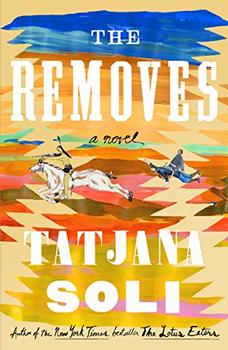George Armstrong Custer was one of the youngest Civil War heroes in the nation. Do you sympathize with his difficulty adjusting to an obscure military life postwar? What do you think of his reinvention of himself as an Indian fighter?

 Do you sympathize with Custer's ...
Do you sympathize with Custer's ...
Created: 08/22/18
Replies: 8
Join Date: 10/15/10
Posts: 3442
George Armstrong Custer was one of the youngest Civil War heroes in the nation. Do you sympathize with his difficulty adjusting to an obscure military life postwar? What do you think of his reinvention of himself as an Indian fighter?
Join Date: 03/11/15
Posts: 120
Custer saw himself as a fighter first, last and always, so the only thing left for him to fight were Indians. I think he saw it as the only occupation left to him. There was no glory in sitting behind a desk.
Join Date: 06/07/17
Posts: 76
Absolutely! Custer excelled and was self-actualized in his passion as a soldier. Regardless of what one's passion is, once it's gone for whatever reason, so is the self-fulfillment, self-esteem. In his case as a public figure, he lost the attention, respect, and accolades that he so loved as well as the rewards (financial and otherwise - as Gloria said, freedom from a desk). His reinvention of himself as an Indian fighter served him for a while but at one point he was "satiated" by war, largely (I think) because he was conflicted by his empathy for the Indians. His further attempts at reinvention as a spokesperson for the railroads and mines didn't pan out -- it wouldn't have worked for him anyway...again, that desk. If he hadn't died at the Battle of Little Big Horn, I can't imagine he would have lived a very meaningful life. He would have been bored and demoralized.
Join Date: 10/27/15
Posts: 146
Yes & I think it's still a difficult adjustment for soldier's today. They have to learn how to live a civilian life. It's difficult after years of a military life & a lot of soldier's choose to go work for defense contractors or defense security firms since both are familiar.
Join Date: 10/23/12
Posts: 35
Join Date: 08/10/17
Posts: 215
I don’t sympathize but I can see that this would be the next step in what he thought would be his path to greater things. He was self-aggrandizing and thought he could never fail. I believe this is a perfect example of hubris.
Join Date: 11/14/11
Posts: 160
Custer was born into a family of humble means & became a larger than life celebrity for his leadership during the American Civil War. Military life was what he knew. I do sympathize with the difficult adjustment to life fighting Indians on the frontier. He was a military hero celebrated in society, the center of attention wherever he went who was demoted after the war concluded because the army had too many generals. What a blow to the ego! What was left for a military man who wanted to distinguish himself? The Indian wars. Life on the edge of civilization was uncomfortable, spare, lonely, isolated, and fraught with constant danger. We cannot judge harshly from the 21st Century perspective the decisions made by an individual soldier / officer following the orders of his command in the mid 19th Century. The Cheyenne brutalized settlers.
Join Date: 09/11/11
Posts: 132
War was the one thing that Custer excelled at. He came from poverty and was looked down upon by the elite in D.C. and New York. Nothing came of his attempts to attain a job from the network of people he met back east. They just liked to hear his repetitive stories. I don't sympathize with Custer. He chose the military life and he chose to fight Indians. He went where he was sent in order to perform his duties. Life wasn't easy in those days.
Join Date: 01/13/18
Posts: 209
There are individuals who are true warriors and for whom it is very difficult to survive outside of war. Custer was one those individuals. His reinvention as an Indian fighter was really the only thing that was available to him which would satisfy his visceral need to be a warrior.
Reply
Please login to post a response.